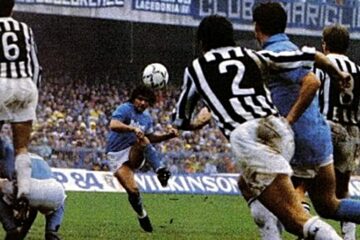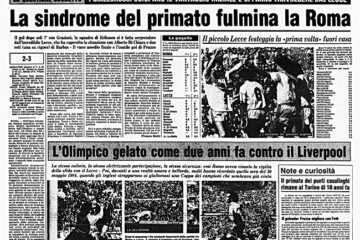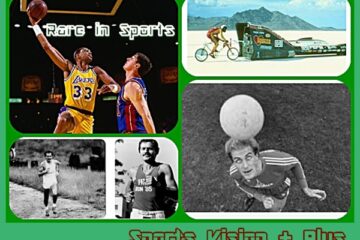Johan Neeskens (1951-2024), the everywhere player!
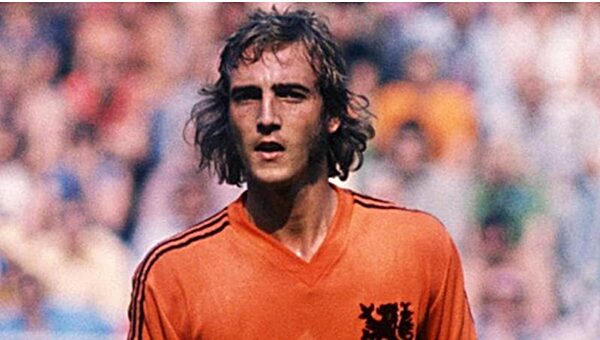
The story of Johan Neeskens, the midfielder who revolutionized total football with Ajax, Holland and Barcelona. A leader on the pitch and an example of strength and talent, he left an indelible mark on the history of world football.
Another petal of the orange tulips has flown away. Johan Neeskens, a formidable midfielder for the Netherlands, runners-up in the world championship in 1974 and 1978, died while he was working in Algeria on a football-related project, World Coaches.
He had turned 73 on September 15. Born in Heemstede, one of the richest municipalities in the Netherlands, Neeskens was one of the symbols of the revolution that changed the history of football forever in the 1970s. His first role was as a full-back, but after joining Ajax, strongly supported by Rinus Michels, he became a midfielder. A revelation: thanks to his extraordinary physical strength, he was the first “box to box” midfielder, capable of covering sixty metres of pitch and gifted with a remarkable sense of goal.
At the 1974 World Cup in Germany, Neeskens scored five goals, including the penalty in the final against the home team. Four years later, Neeskens would lose the second final in a row, once again against the host country, Argentina.
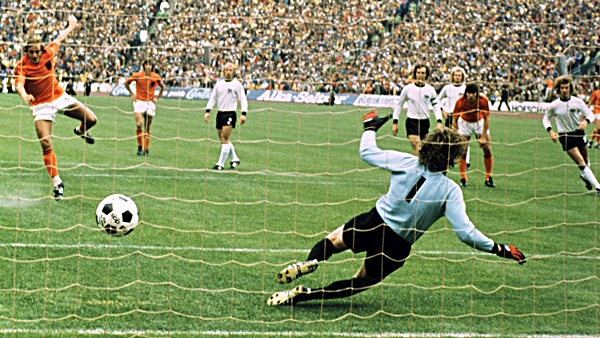
The figure of Neeskens is closely intertwined with that of Johann Cruijff. The two made up a legendary midfield: Neeskens split himself into two roles, number 4 and number 8, while Cruijff was the pure talent. Neeskens, who grew up at Racing Club Heemstede (1968-1970), arrived at Ajax to experience a fabulous four-year period, in which the lancers won three Champions Cups (1971, 1972 and 1973), two Dutch championships (1972 and 1973), two national cups (1971 and 1972), an Intercontinental Cup (1972) and a UEFA Super Cup (1973).
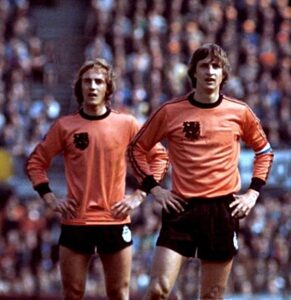
In 1974, he joined Cruijff at Barcelona and became an idol of the Blaugrana fans: he identified with the Catalan spirit in a Spain still prisoner of Francoism. The five seasons he spent in Barcelona enriched his trophy cabinet with a Copa del Rey (1978) and a Cup Winners’ Cup (1979). In 1979, he flew to the United States, to Cosmos, to restore his finances and gain a new experience.
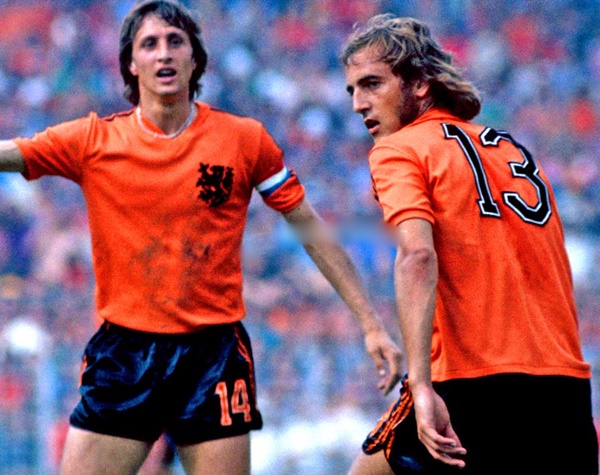
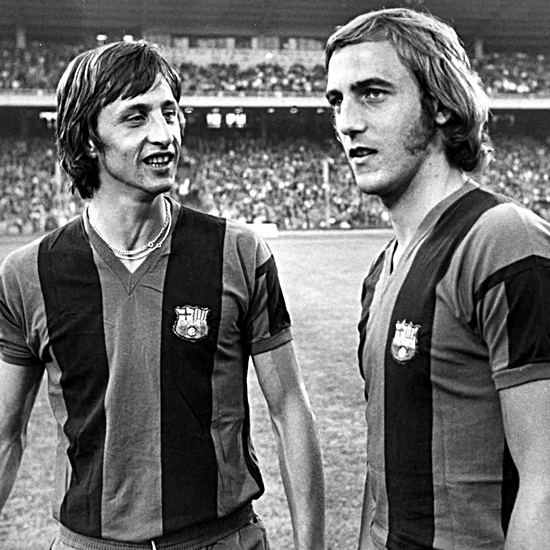
In 1984, he returned to Holland, to Groningen and after a second chapter in the USA, he ended his career, in Switzerland, in 1991.
The coach was not at the same level as the player, but he was a valuable assistant to the national teams of Holland and Australia: he was on the bench, alongside Hiddink, on the day of the round of 16 match against Italy, won 1-0 by the Azzurri thanks to a penalty by Totti. From 2006 to 2008, he was back at Barcelona, assistant to Rijkaard. The negative experience in South Africa, at the helm of Mamelodi Sundowns, convinced him, in 2012, to say goodbye to the bench.
The news of Neeskens’ death was a shock for Holland. A character much loved by fans, his social commitment was a sign of the quality of the man: eleven years of intense activity to deal with childhood disabilities. A sensitivity born from a difficult childhood: his mother was ill, with only one functioning lung; his father was a worker, in a blast furnace company, backbreaking work.
Little Han, as his mother calls him, looks after the chickens, cows, pigs and hares on the family farm. He did not do well at school, but one day he discovered he had excellent physical skills. He won running, high jump and long jump competitions, then decided to devote himself to baseball. In the European Youth Championships in Rome, he was named best batter of the tournament. He started playing football at the age of 16 and was immediately thrown into the fray.
Until 1970 he was forced to divide his time between football and work: he was a cleaner. The house is run down and with his brother, in 1970, he occupies a house in Haarlem: ten days later the eviction takes place, but Johan’s career is taking off. The economic problems, with the transfer to Ajax, are finally overcome.
Neeskens is promoted to the starting lineup after the second match of the summer retreat, against Chelsea. Spectacular performance and headlines in the newspapers: “A star is born”. The initial role is that of full-back, but he will soon be diverted to midfield: on 31 May 1972 he will dominate Sandro Mazzola in the final of the Champions Cup Ajax-Inter in Rotterdam, 2-0 for the Dutch. A bad investment causes him financial problems, but the transfer to Barcelona solves his problems. Neeskens is tough and ruthless on the pitch, gullible and a little naive off it. Vertiginous earnings and sudden collapses will mark his existence, to the point of sinking for a short period into alcoholism.
A phrase from his former teammate, Rijsbergen, is lapidary: “Johan seems like a magnet. The wrong people have controlled his life”. America will bring him back up, thanks not only to the strength of the dollars, but also to the acquaintance of a Swiss woman, Marlis von Reding. The two will marry in 1985. They will have two children. “I have finally found peace”, his words and the beginning of a new path, lighter, concluded suddenly in Algeria, on a Sunday in October.
He passed away on October6, 2024
Goodbye Neeskens, football legend, symbol of a revolution: for those who enjoyed the great Holland of the Seventies, it is a truly sad day.
By Pjerin Bj | October 10, 2024
________________________
Sports Vision+ / The Hour of The Champions in activity since 2013
Discover more from Sports Vision +
Subscribe to get the latest posts sent to your email.


